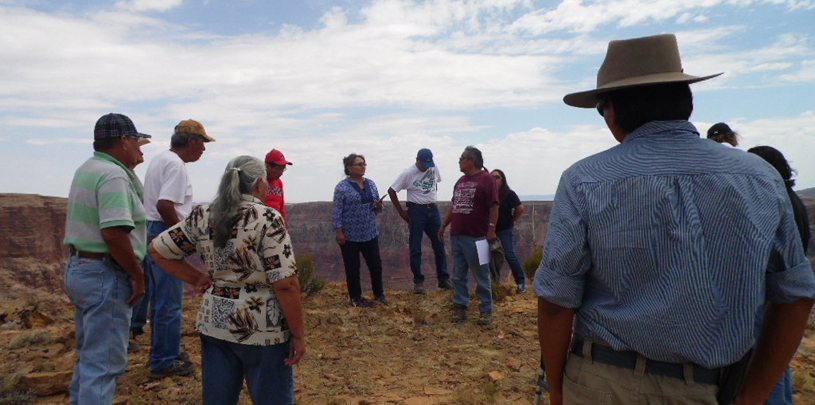
 by Roger Clark, Director of Grand Canyon
by Roger Clark, Director of Grand Canyon
As someone struggling to reconcile clashing points of view about the proposed Grand Canyon tramway, I was struck by a recent article in the winter edition of Boatman’s Quarterly Review. It managed, I thought, to translate ancient wisdom into something worth considering when entering special places.
In “Respectful Recreation in the Grand Canyon—An Anthropologist’s Perspective”, authors Kelly Hays-Gilpin and Greg Woodall wrote:
Ancestors are not just people who lived and died a long time ago. They are still present in the places they lived. Place is more important than time, and place is not separate from time. Time and people and actions accumulate in places. We see our actions as affecting the present (and perhaps the future), but in the cultures of people who call the Grand Canyon their homeland, our actions are seen as impacting the present, the future, and the past (and those in the past)….The Grand Canyon is a National Park, a World Heritage site, and homeland to other cultures; so showing a little respect as we visit is only appropriate.
I asked archeologist Jason Nez whether these words rang true from his perspective as a person who was raised among traditional Navajo who live along Grand Canyon’s eastern edge, near the confluence of the Colorado and Little Colorado rivers. He answered, “they do.” But, I suspect that his traditional side kept him from saying more. It’s often difficult to express native teachings in another language and inappropriate to share stories passed down through generations in ceremonies and sacred places.
Later that evening, the “Save the Confluence” coalition—a grassroots group of Navajo families from the area surrounding the proposed development—gathered at the Denny’s in Tuba City to discuss progress in stopping promoters from building a resort and tramway that would ferry 10,000 tourists a day down to the confluence. Between opening and closing prayers, Save the Confluence members including sheepherders, community organizers, and legal aids, strategized, told stories, laughed, and wept.
In the midst of the evening, I distributed a copy of the article on respectful recreation. Those who understood the written language of my foreign culture agreed that the words captured something akin to their concept of respect for all relationships. But they too held back from elaborating, perhaps because the meaning behind such beliefs cannot be translated into English.
Save the Confluence elder and long-distance runner Wilson O. Wilson smiled and said it would be “OK” if I wanted to distribute the article to people who are willing to join his relatives in respecting the Grand Canyon. Based on my evolving experience with this passionate man whose expressions speak volumes, I took his reply as a resounding affirmation. That’s when I realized that, even in a Denny’s, time can suddenly stand still.
So I’m sharing the anthropologists’ article with you now, hoping that we might deepen our respect when entering the homeland of many native cultures, past, present, and future. Entering the Grand Canyon is entering their home.
80% of Arizona voters support Baaj Nwaavjo I'tah Kukveni National Monument, according to a new poll.
Read MoreUtah voters strongly support national monuments in general, and Bears Ears and Grand Staircase-Escalante in particular, a new poll shows.
Read MoreA small victory in the legal case challenging Daneros uranium mine, near Bears Ears National Monument.
Read More